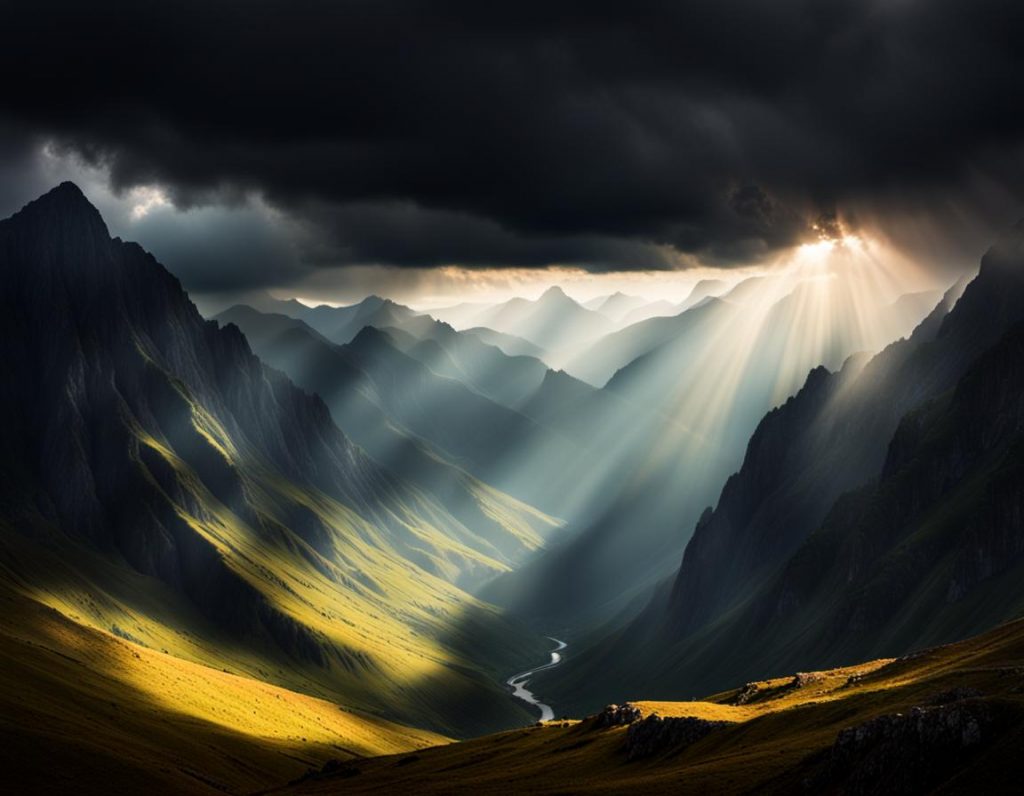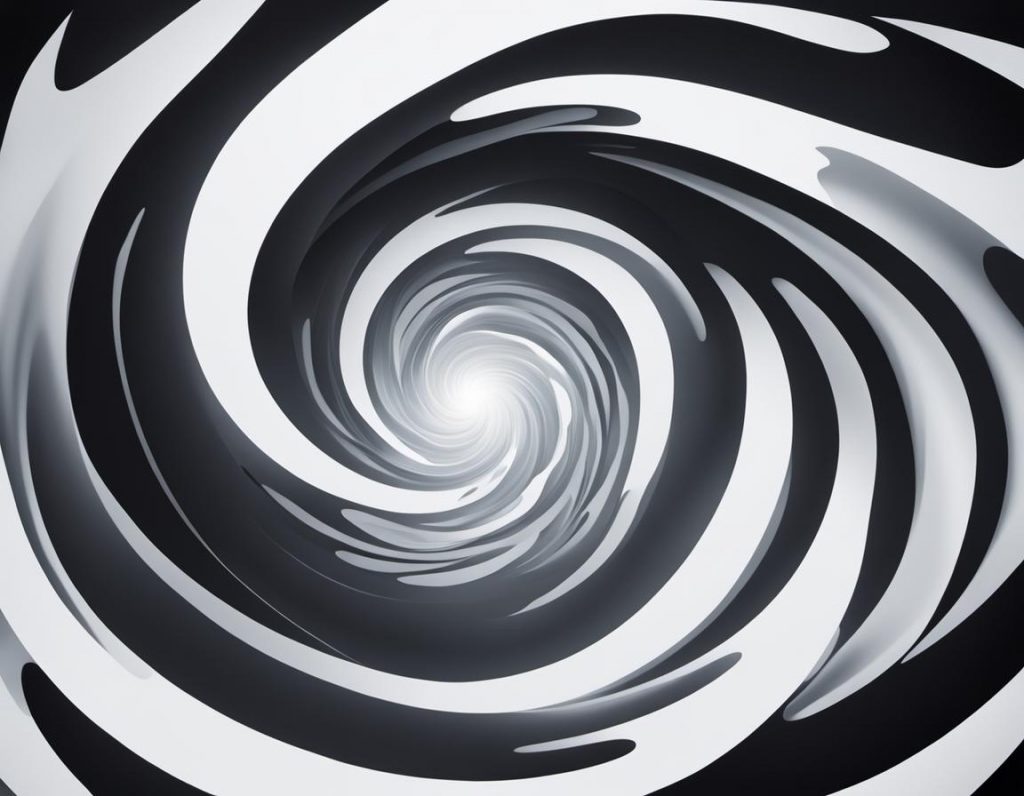
The first step of the Katabasis is the transmutation of gold into mercury. This involves imperfection, as the substance of the highest stage of the Mithraic Ladder must descend into the material world, and the world of petty human concerns. Thus it becomes human. This transmutation is therefore that of divinity into corporeal form.
Understanding the nature of this transformation is very difficult. As with the reverse transmutation, from mercury into gold, extremely subtle energies are involved. These energies are so subtle that the vast majority of people, in their ordinary lives, will never experience them. Thus, the nature of this process is difficult to write about.
The primary motive for becoming imperfect is boredom. This boredom is chiefly driven by the loneliness of divinity.
Most people don’t understand that living for eternity in perfect bliss eventually becomes agonisingly boring. Infinitely boring. So much so that consciousness is literally willing to dream up every conceivable type of suffering in order to avoid that boredom. No suffering is so great that it weighs heavier than boredom for eternity. Thus, the entire Great Fractal is created.
What an eternal, infinite, all-powerful and all-knowing consciousness would dream up for the sake of entertainment would be limitation – or at least the illusion of it (infinite consciousness could never really be limited). An example of that limitation would be incarnating as a human being on this planet.
Thus, consciousness would split itself up into an infinitude of fragments, each of which lived a different life (i.e. set of limitations) at any one time. Taken individually, each one of these lives represents an extreme limitation: from the all-knowingness of divine consciousness to being restricted to the sensations and perceptions of one body only.
One way to conceptualise this would be to imagine a white light and perfect bliss. After enough time, when such perfect bliss became boring enough, one might imagine that consciousness chose to temporarily forget its ultimately blissful nature about half of the time, such that the white light seemed to blink in and out of existence. Now there was an oscilliation between white and black – much more interesting than just white.
Imagine then that half of the white light darkened, but only slightly, and that half of the black light lightened, but only slightly, such that there were now four different shades, each blinking in and then out of existence in turn.
Then imagine that each of these four shades were split into a good half and an evil half, which wasn’t immediately obvious from just looking at them but which was felt after experiencing each of them for long enough. Thus these three divisions created both a good and an evil version of each of white, light grey, dark grey and black light.

These eight different energies could be themselves tell an interesting story, if they were rotated through in the right order. Imagine that when the stories of those eight energies get boring, they’re split up again into sixteen, and then again, and again and again, until consciousness has dreamed up everything that it’s possible to perceive, conceive, imagine or sense. All possible lives that can be lived, in all possible worlds, in all possible historical eras.
All of these lives are imperfections in the sense that their boundaries are defined by the limitation of divine perfection. Thus, in willing to incarnate in a physical form in the Great Fractal, consciousness experiences an impulse towards imperfection. This impulse is the basis of the Katabasis, and is similar to the Undergoing Will in Elementalism.
The transmutation from gold to mercury will be complete when the character develops an ego. This spiritual imperfection makes them a mere human again. The development of the ego is essentially the story of the Katabasis, as the most egotistical and narcissistic characters will usually find themselves among the lower rungs of the Mithraic Ladder.
The development of the ego will bring with it ambition, which is characteristic of the level of mercury. To fall to this level, divinity must decide that there is something it wishes to experience while incarnated in human form. In all cases, this experience is a subdivine one – and often immoral. Only a consciousness that had become bored of perfect bliss could wish for such.
The first actions towards the end of imperfection come when a character is tempted to behave without rectitude. This can involve almost anything immoral. A typical example is a desire that cannot be fulfilled without causing suffering.
Stylistically, the transmutation from gold into mercury corresponds to the dimming of the Sun. Any time when light falls into shadow reflects the nature of the Katabasis. This transmutation can also be represented by any sudden downgoing, such as a fall down some stairs, or a journey over the edge of a waterfall.

Physically, this stage is marked by the profoundest possible change: that of incarnation. A character will transmute from a potentiality within consciousness to a physical form. It is the overall nature of this incarnation that characterises this transmutation, not the specific form of the incarnation itself. So the specific details are not important here.
Mentally, this transmutation is marked by the shift from desirelessness to desire. In nirvana, the total absence of desire correlates with bliss. But when the desire for something else than eternal bliss arises – i.e., when boredom arises – the transmutation from spiritual gold to spiritual mercury begins (of course, mercury need not be the final stage of the descent).
Mathematically, the transmutation from gold to mercury is equivalent from unity to division. Singularity to multiplicity.
It has also been observed that a vial of mercury will divide into a multitude of smaller blobs if poured out onto a surface. This is analogous to how the gold of Brahman divides into the mercury of every individual Atman. The transmutation from gold to mercury can therefore be understood as a matter of manifesting ego.
This first stage of the Katabasis is probably the least interesting out of all twelve of the transformations in the Heroic Journey. Characters of both gold and mercury can be hard to identify with, given that both levels are far above the frequencies of ordinary people.
However, the nature of the transmutation of gold into mercury is emblematic of all of the stages of the Katabasis. As above, so below: the decay of gold into mercury is, in microcosm, what all of the other decays are in macrocosm. The boredom-induced temptation to place some sensation or perception above the demands of rectitude is behind every step in the descent from spiritual gold to spiritual lead.
Therefore, the transmutation of gold into mercury can serve a powerful metaphorical role.
*
This is an excerpt from Vince McLeod’s The Alchemy of Character Development, the sixth book in VJM Publishing’s Writing With Psychology series. This book will show you how to use alchemy to create deep, realistic and engaging characters for your creative fiction.
If you enjoyed reading this piece, buy a compilation of our best pieces from previous years!
Best VJMP Essays and Articles of 2023
Best VJMP Essays and Articles of 2022
Best VJMP Essays and Articles of 2021
Best VJMP Essays and Articles of 2020
Best VJMP Essays and Articles of 2019
Best VJMP Essays and Articles of 2018
Best VJMP Essays and Articles of 2017
*
If you would like to support our work in other ways, make a donation to our Paypal! Even better, buy any one of our books!
